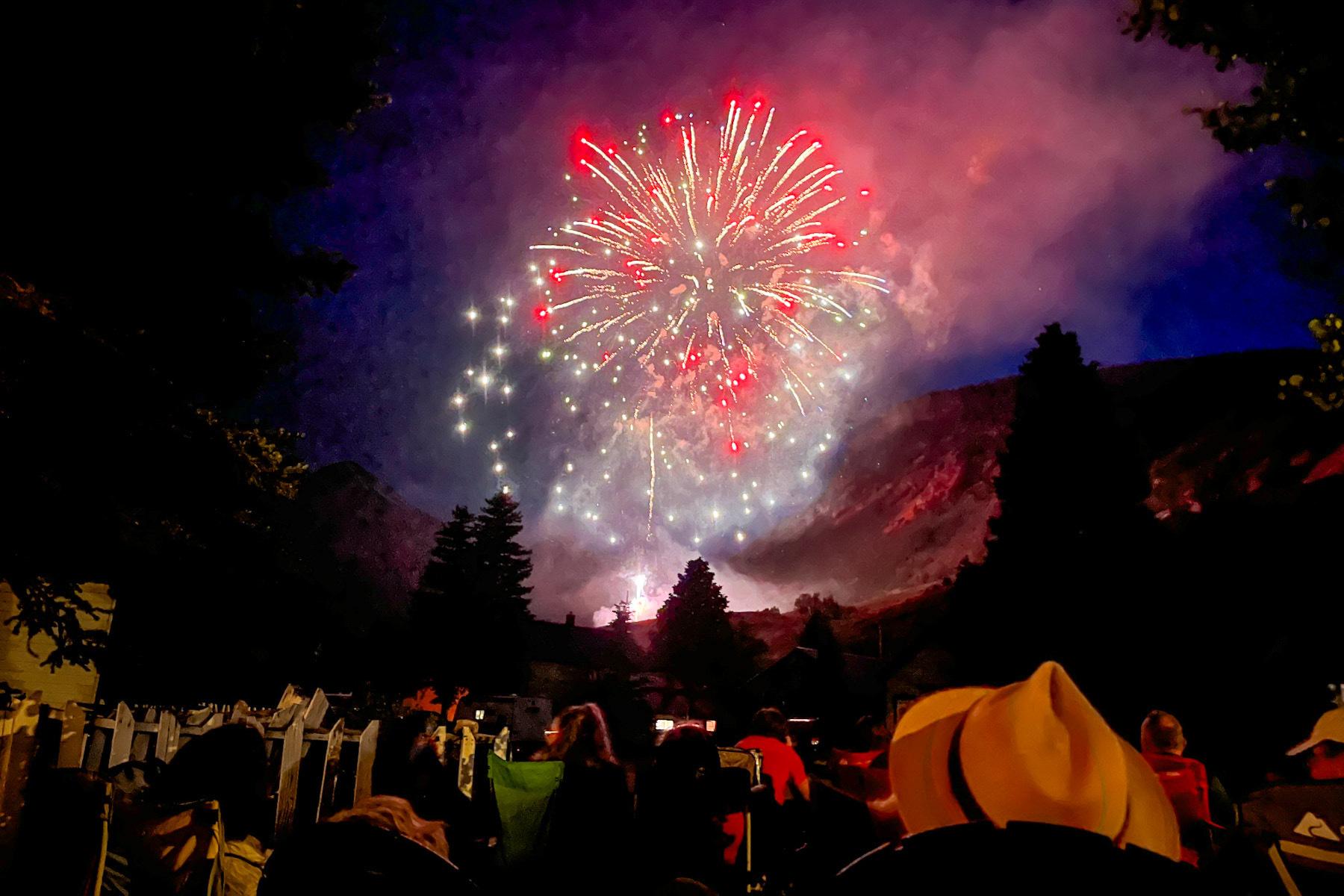
Fireworks are a beloved American tradition. But Colorado communities are increasingly deciding it’s too risky to continue.
Garfield County is the latest to ban the use, sale, and possession of fireworks. County commissioners voted this week to approve the moratorium for unincorporated areas, following similar restrictions in neighboring cities, including Carbondale, Glenwood Springs, and Rifle.
Fireworks were already banned on federal lands, including those managed by the Bureau of Land Management and the U.S. Forest Service.
Climate change is making Colorado hotter and drier. As conditions across the region grow more dangerous, it just doesn’t make sense to allow fireworks anymore, explained Karl Oliver, division chief of prevention and fire marshal with the Carbondale and Rural Fire Protection District.
“The type of vegetation that we have here is very subject to burning fairly quickly,” he said, adding that fireworks started a small blaze in the Basalt area several years ago. Crews were able to put it out quickly, but the 2018 Lake Christine fire burned through the same area, destroying three homes. That fire was sparked by tracer ammunition at a gun range, but proved how dangerous a wildfire in that location can be, Oliver said.
“It just shows that it doesn't take much to start a fairly large blaze going,” he said, “and with a lot of homes in fire-prone environments, it is easy to see that the risk is just too high.”
Oliver sees Garfield County’s new restriction as part of a larger trend. Cities across Colorado have banned personal fireworks, including mountain towns like Breckenridge and big urban areas like Colorado Springs.
In Aspen, a colorful drone show has replaced the traditional fireworks display.
Oliver said it used to be common for Garfield County locals to head out to some open land to set off fireworks on the Fourth of July, but he thinks that way to celebrate is becoming less popular.
“Slowly we're all moving to this new reality that certain things that we have done in the past are no longer viable due to the risks that we're putting into our communities and to the homes and to people around this area,” Oliver said.
Oliver said other communities in the region are considering fireworks bans of their own “or should be.”
The county’s ordinance has teeth — up to a $1,000 fine for each violation — but it also has a significant limitation: Colorado state law says counties cannot prohibit fireworks between May 31 and July 5 unless they can show “competitive evidence of high fire danger.”
That means that come summer, the county’s emergency management team will be monitoring wildfire conditions to see if a resolution covering those dates is needed.








